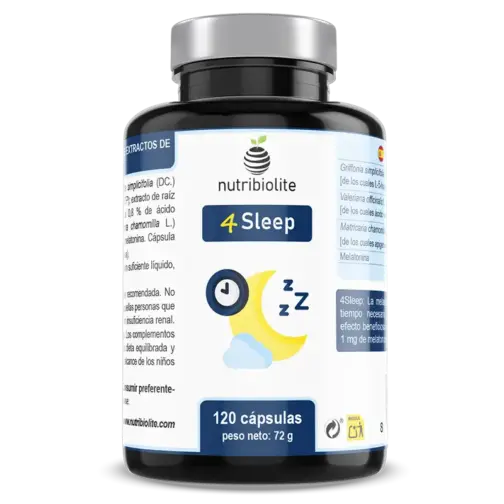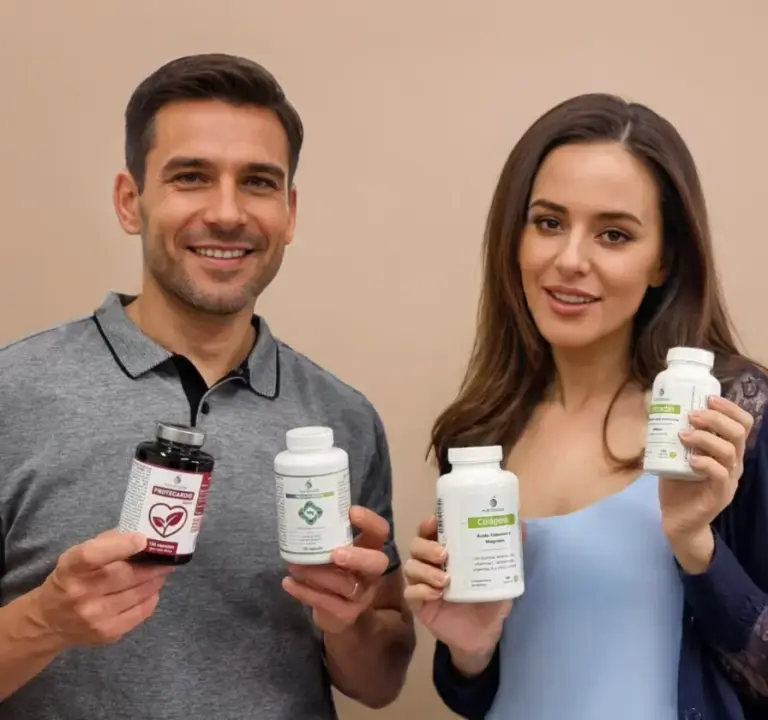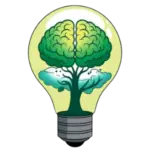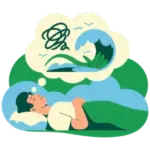The vagus nerve: bridging calm, alertness and quality of rest
Sleep is much more than closing your eyes. It is an invisible choreography between the brain, the senses and the electrical signals coursing through our nerves. The vagus nerve, one of the great internal regulators, connects the ear to deep regions of the brain responsible for alertness and relaxation. When this auricular branch is gently stimulated, non-invasively and without drugs, it activates pathways that promote both daytime alertness and smoother transitions to restful sleep.
In this recent clinical study, people who underwent real vagus nerve stimulation increased their ability to stay awake during MWT. In addition, they experienced marked improvements in subjective scales of sleepiness and quality of night-time rest. This effect appears to be due to functional changes in brain regions such as the brainstem and areas related to emotional and cognitive regulation.
Daily rituals to promote a natural sleep-wake cycle
Every night is an invitation to restore body and mind. Scientific evidence confirms that small practices, such as reducing bright lights before bedtime, avoiding blue screens or taking a few minutes for deep breathing, help to synchronise our autonomic nervous system. This paves the way for genuine rest.
External stimulation of the vagus nerve is not accessible to everyone, but we can draw inspiration from its natural mechanisms: keeping regular bedtimes, having a light dinner and creating quiet environments are simple gestures that help the brain to distinguish when it is time to rest or be attentive.
The physiological role of melatonin and 5-HTP: natural allies of rest
Our body produces melatonin, a key hormone for signalling the arrival of night and initiating deep cellular and mental repair processes. Its production also depends on precursors such as 5-HTP, a natural derivative present in specific foods or plant extracts. Over the years, and especially after the age of 40, these levels tend to decrease, which can make it difficult to fall asleep or cause frequent awakenings.
This is why it makes sense to use formulas that respect the same physiological rhythm: support internal synthesis with safe doses of melatonin (1 mg) just before bedtime and accompany it with standardised extracts rich in 5-HTP (such as Griffonia), along with traditionally calming plants such as valerian or chamomile.

Melatonin 1 mg and 5-HTP with relaxing plants to facilitate the onset of rest, as a complement to specific nocturnal habits.
Frequently asked questions about tVNS, healthy routine and nutritional support
What exactly is auricular vagus nerve stimulation?
It consists of applying gentle electrical pulses to a specific area of the external auditory pinna (concha auricularis), activating sensory fibres connected to the vagus nerve that influence brain centres related to alertness, calmness and emotional regulation. It is a non-invasive technique used primarily under specialist medical supervision.
Can anyone benefit directly from this technique?
It is not intended for general use, nor does it replace healthy habits or conventional medical treatments for severe sleep disorders. However, understanding how it works helps us to assess daily routines aligned with our autonomic nervous system.
How do products like 4Sleep complement this physiological approach?
4Sleep uses melatonin (1 mg), standardised Griffonia extract rich in 5-HTP (49 mg), valerian and chamomile to biologically accompany the natural phases prior to deep sleep. It does not replace medical therapies or electrical devices but supports similar physiological processes from the inside out.
What is the difference between taking melatonin alone or combining it with other ingredients?
Adding precursors such as 5-HTP makes it easier for your body to produce its own serotonin, an immediate precursor of melatonin, thus enhancing synergistic effects alongside traditional relaxant plants such as valerian or chamomile present in holistic formulas such as 4Sleep.
Is it safe to use night-time nutritional supplements every day?
Yes, as long as the recommended dosage is respected (for example, the maximum daily dose of melatonin authorised by EFSA is 1 mg) and good night-time habits are maintained. Always consult with your doctor if you have any personal doubts or if you are taking chronic medication.
















